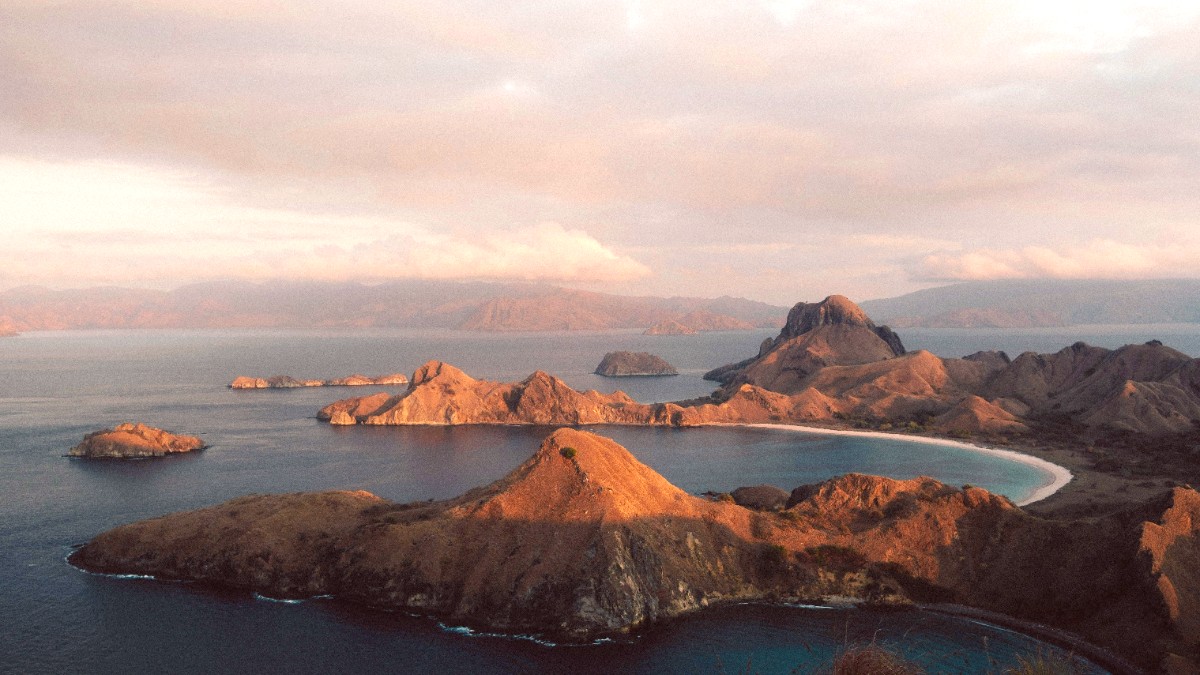
Indonesia
Gili Air maintains warm temperatures throughout the year, with little fluctuation. Average daily temperatures typically range from 27°C to 32°C (81°F to 90°F). Sea temperatures stay consistently pleasant, usually around 28°C (82°F), perfect for swimming and water activities.
The Dry Season (May to October) brings abundant sunshine, lower humidity, and minimal rainfall. Days are generally clear and bright, and the air feels less heavy. This season offers perfect conditions for outdoor pursuits and comfortable movement around the island.
Gili Air does not experience hurricanes. While heavy rain occurs, it rarely brings severe travel disruptions. Tropical showers are typically intermittent. Temperatures stay warm and pleasant year-round, never reaching extreme highs or lows.
The region does experience seismic activity as Indonesia sits on the "Pacific Ring of Fire." Minor tremors occur frequently, though major destructive earthquakes are rare. Familiarize yourself with hotel evacuation procedures upon arrival. While tsunamis are possible after a major offshore earthquake, the Gili Islands are relatively low-lying. Tsunami evacuation routes are marked in some areas. Pay attention to local warnings if a significant earthquake occurs. Strong currents can occur around the islands, especially during tidal changes. Always check with local operators about current conditions before swimming or snorkeling in unfamiliar areas.
Excellent weather, peak crowds.
Minimal rain, calm seas, ideal visibility for water activities. Island fully operational, lively atmosphere.
Peak prices for accommodation/flights. Crowded beaches/restaurants. Booking well in advance advised.
Ideal blend of good weather and fewer crowds.
Weather good, mix of sun/occasional rain. Fewer crowds, relaxed experience. Prices potentially lower. Good water visibility.
Early April/late Oct may see wet season transition, increased rain chance.
Significantly fewer tourists, budget-friendly.
Quiet atmosphere. Accommodation and activity prices considerably lower.
Higher rain chance, can affect choppy boat transfers. Some smaller businesses may reduce hours/close. Water visibility can reduce slightly.
Diving & Snorkeling: May to October offers the best visibility and calmest waters, maximizing your underwater experience.
Island Hopping: The dry season offers smoother boat transfers between the Gili Islands due to calmer sea conditions.
All year, but the dry season for more consistent sunshine.
All year, as most activities take place indoors or under covered spaces.
Anytime for beachside meals, though sunsets are clearest in dry season.
Dry season offers clearer skies for photos of Mount Rinjani and sunsets.
Pleasant year-round, but dry season paths are less muddy.
Prepare your documents for smooth entry into Indonesia and Gili Air.
Indonesia offers several entry options for tourists, including Visa Exemption for many nationalities and Visa on Arrival (VoA) for others.
Ensure you have all necessary documents ready for immigration, including valid passport and proof of onward travel.
Gili Air has experiences for every budget, from backpacker-friendly options to luxurious escapes.
Detailed cost breakdowns for different travel styles.
IDR 400,000 - 800,000 (~$25 - $50 USD)
IDR 150,000 - 300,000 for hostel dorm/basic guesthouse.
IDR 100,000 - 200,000 for local warungs/night market food.
Daily Costs: IDR 800,000 - 1,500,000 (~$50 - $95 USD)
Accommodation: IDR 300,000 - 700,000 for comfortable guesthouse with AC, mid-range hotel, or bungalow with pool.
Meals: IDR 200,000 - 400,000 for a mix of local and mid-range restaurants, including drinks.
Activities: IDR 100,000 - 400,000 for group snorkeling trip, intro dive, or regular yoga classes.
IDR 1,500,000+ (~$95+ USD)
IDR 700,000+ for boutique resorts, private villas, upscale beachfront properties.
IDR 400,000+ for fine dining, international restaurants, cocktails. Multiple certified dives, private boat tours, spa treatments.
Prioritize your well-being on Gili Air with these considerations.